“I was a hugger,” Meghan, the Duchess of Sussex and wife of Prince Harry, the Duke of Sussex, explains in the second episode of their eponymous Netflix docuseries Harry & Meghan. “I’ve always been a hugger. I didn’t realize that that is really jarring for a lot of Brits.” British American Cultural Clash Over Royalty.
She was talking about meeting her future brother-in-law and his wife, the now Prince and Princess of Wales.
The playwright George Bernard Shaw once quipped that the U.S. and U.K. are “two nations separated by a common language.” Rarely has the truth of that statement been more evident than in Meghan’s failure to assimilate into Royal life — and to the very different reactions this docuseries is inspiring on either side of the Atlantic.
For my American friends, Meghan and Harry represent warmth and compassion being rejected by austere devotion to tradition and a rigid class and racial structure. British friends, on the other, see ungrateful posh people who insulted the late Queen and all she held dear while moaning about the immense privileges afforded them.
Two nations. One language. No mutual understanding.
I am something of an expert in this. I have spent my adult life traveling to the UK, studying its history, politics, and culture. I write for the British press. I have covered everything from general elections to national tragedies such as the Grenfell Tower fire to the BBC soap opera EastEnders. I love that nation and its people as much as I love my own.
Yet seeing it through Meghan’s eyes, I recognized just how different our nations are – and why so many Americans have such a difficult time navigating British life.
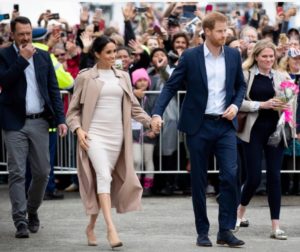
While there are certainly issues of race and class at play in the story of Meghan and Harry, so much of what transpired can be attributed quite simply to culture shock. The United States and the United Kingdom, while on paper very similar, are remarkably different cultures. Meghan was not prepared for the culture she was stepping into, and that culture was not prepared for Meghan.
There’s an old adage that Americans are friendly, but not polite, while the British are polite, but not friendly. This clash of cultures is apparent early in episode two, when the documentary focuses on the Duchess’ initial relationship with the press. Early after their courtship became public, Meghan – who, though a successful television actress, was far from a household name – found herself hounded by the paparazzi and, like any American, smiled and tried to be friendly.
She later explained to Harry that this was just her trying to be nice. “I remember H[arry] saying the next day, ‘You can’t talk to them,’ and I was like ‘I’m trying to be pleasant. I don’t know what to do, I’ve never dealt with this before.’” Yet, as she relays, Harry told her, “but the U.K. media are saying you love it. You’re smiling, you love it.”
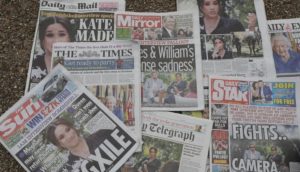
There are two things worth acknowledging here. First, there is no U.S. equivalent to the British tabloids. While we have the National Enquirer, the Globe, the Murdoch-owned New York Post, and a few others, their influence pales in comparison to the British tabloids. As pointed out in the series, the British tabloids not only reflect but shape the public mood in the U.K. The same cannot be said for the American tabloids, which most people – even their readership – view skeptically. For example, the National Enquirer had a circulation of only about 180,000 in 2019, whereas the Sun in the U.K. had a circulation of over 1.2 million in 2020 — in a nation that has about a fifth as many people as the United States.
Yes, we have magazines such as People and US Weekly, but those magazines largely depend on what we term “access journalism;” that is, they print interviews with celebrities and celebrity-adjacent people (designers, makeup artists), which rely on having a good working relationship with Hollywood. The British tabloids, on the other hand, are vicious vultures who have a track record of hacking the phones of murdered schoolgirls and who literally chased Princess Diana – Harry’s mother – to her death. They make 2000s-era Perez Hilton look like Walter Cronkite. Harry was right to warn Meghan that her friendliness would not be rewarded nor reciprocated.
 Which brings me to point two. Anyone who knows an American knows we are a smiley people. Our culture values friendliness and congeniality far more than British culture (especially middle- and upper-class culture), which instead emphasizes manners and decorum. Meghan was behaving as many, if not most, Americans would behave in such a disturbing situation, trying to be friendly and, in her own words, “pleasant.” To the British, though, smiling at such an intrusion of privacy indicates that one is enjoying the attention – and that level of public self-indulgence is simply not done.
Which brings me to point two. Anyone who knows an American knows we are a smiley people. Our culture values friendliness and congeniality far more than British culture (especially middle- and upper-class culture), which instead emphasizes manners and decorum. Meghan was behaving as many, if not most, Americans would behave in such a disturbing situation, trying to be friendly and, in her own words, “pleasant.” To the British, though, smiling at such an intrusion of privacy indicates that one is enjoying the attention – and that level of public self-indulgence is simply not done.
Humanizing our Icons vs. Maintaining Collective Order

Indeed, the British generally frown on public displays of sentiment or emotion. Certainly, filming an entire documentary about yourself and airing private grievances publicly is very undignified to many in the country. Americans may be quick to ascribe this to emotional repression, but it really comes from a profound sense of the collective. There is a reason the British are better at queuing – that is, lining up – than Americans. They prize order not because they are trying to stifle the individual but because they are conscious of the needs and comfort of others far more than Americans, who though friendly, still value rugged individualism and individuality above anything else.
Meghan is certainly an individual. She has style, charisma, poise, and an intelligence that cannot be denied, even by her most ardent detractors. Yet she is also outwardly confident in her own abilities. We see this from an early age, as Meghan revisits her elementary school and reads a note she left in her principal’s yearbook as a child, promising to make sure everyone knew about the school when she was rich and famous.
To the British, that reads as arrogance. To Americans, it reads as ambition – and ambition is encouraged in this country. Meghan is, in many regards, the epitome of the American dream. She was a middle-class child of a single mom who attended one of the most prestigious universities in the country – Northwestern University – and made it big, first in television and then on the global stage as a philanthropist and working with the United Nations to advocate for the rights of women. This was all before she met Harry.
The U.K. actually has greater upward mobility than the U.S., yet ironically — and likely because of its entrenched class structure — British culture does not encourage upward mobility the way the myth of the American dream does. Part of this is down to Britain’s entrenched class structure. The UK lacks any cultural fable analogous to bootstrap theory or the American dream. British people tend to see their possibilities as far more limited by the class into which they were born. As mentioned, this is not reality – Britain allows for more upward mobility than America – but the cultural experience of class means that Americans and Britons view Meghan and Harry very differently.

The class structure in the United Kingdom is millennia old and as ingrained in society as race is ingrained in the United States. It shapes everything from the TV you watch – my middle-class friends regularly give me grief for being so invested in a “soap opera” like EastEnders, about working class Londoners, despite many of them enjoying the lavishness of Downton Abbey, itself a type of soap opera – to the newspapers you read (broadsheets for the middle- and upper-class; tabloids for the working-class) to, at least historically, the political party you supported; the center-left party in the U.K is literally called Labour and arose from the trade union movement. Obviously, these are generalizations and individual exceptions apply, but these are the markers which shape British public life.
This is deeply important to understand, because it explains a key reason why Meghan – and by extension Harry – gain so much more sympathy this side of the Atlantic. The British look at this ludicrously wealthy couple and see two posh people moaning about how stifling their gilded cage is. Americans look at them and see not two rich people, but two unique individuals who have had the flames of their own individuality extinguished by a repressive system and culture which, to them, demands conformity.
Structural Racism’s Tale of Two Histories
This is especially complicated because Meghan is Black. I can already hear (white) British friends rolling their eyes and saying “she’s biracial, Skylar.” In America, thanks to the one-drop rule – which loosely means that if you have even one 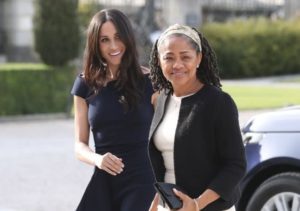 Black ancestor you’re considered Black – Meghan is definitely viewed as a Black woman. Interestingly, she says that she wasn’t “treated” as a Black woman before, likely an acknowledgement of her own light-skin privilege and of colorism, which is another system of oppression born out of slavery and America’s structural racism. Still, where many if not most Brits see first a privileged wealthy woman, most Americans see first a Black woman – with all that being a Black woman in America entails.
Black ancestor you’re considered Black – Meghan is definitely viewed as a Black woman. Interestingly, she says that she wasn’t “treated” as a Black woman before, likely an acknowledgement of her own light-skin privilege and of colorism, which is another system of oppression born out of slavery and America’s structural racism. Still, where many if not most Brits see first a privileged wealthy woman, most Americans see first a Black woman – with all that being a Black woman in America entails.
“But Meghan wasn’t in America, she was in Britain!” I can hear my exasperated friends saying. This is true. Yet in episode two, the journalist Afua Hirsch makes an astute point that Britain had its “own deep south” that was every bit as brutal as the American deep south when it came to treatment of slaves: the Caribbean. The difference is that its far-off location meant that it was “out of sight and out of mind.”
Because of this, white Britain has never been forced to face up to its racist past the way white America has, simply because the worst atrocities of that racist past did not happen on British soil, but rather far across the sea. It’s easy, then, for Britain to say “that isn’t our history” – even though, as the docuseries points out, there are still intergenerationally wealthy families in the U.K who got rich on the back of enslaved Black people.
In truth, Britain has never reckoned with the legacy of empire and what that means. It is glossed over in school curriculum and very often ignored in BBC historical programing and other discussions of British history. We in the United States are far from perfect when it comes to acknowledging our own structural racism, but because of the gains of the Civil Rights Movement — and simply by dint of having a much larger and therefore louder Black community — we have been forced to reckon with past injustices more than our British cousins.
Yet reckoning with past mistakes can not only be cathartic, it’s necessary to begin to repair harm caused. We need look no further than Harry himself to see that. Reflecting on the 2005 controversy when he wore a Nazi costume, Harry commented that he “felt so ashamed afterwards” and that “all I wanted to do was make it right.” He went on to speak to the chief rabbi of London, meet with a Holocaust survivor in Berlin, and use the mistake as an opportunity to grow. “I could have just ignored it and gone on and probably made the same mistakes over and over again in my life, but I learned from that,” he says.
So What To Takeaway from Harry & Meghan?
Britain should take a page from its prince and learn from past mistakes, not just with empire but with how it treats members of the Royal family. Harry mentioned early on that there was this feeling that because all Royal wives suffer tabloid abuse, Meghan should not have been protected. I would contend that no Royal wife – or husband – should suffer abuse in the tabloids. There is a difference between legitimate coverage of public figures and the outright hostility we so often see from the Royal Rota and other commentators.
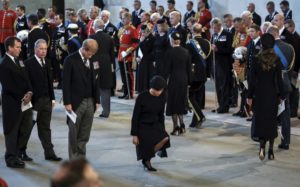 I’m seeing that especially directed at Meghan, with many commentators on Twitter accusing her of mocking the late Queen when discussing their first meeting. “How do you explain that you bow to your grandmother? And that you will need to curtsy? Especially to an American,” Prince Harry says of introducing Meghan to Queen Elizabeth II. “That’s weird.”
I’m seeing that especially directed at Meghan, with many commentators on Twitter accusing her of mocking the late Queen when discussing their first meeting. “How do you explain that you bow to your grandmother? And that you will need to curtsy? Especially to an American,” Prince Harry says of introducing Meghan to Queen Elizabeth II. “That’s weird.”
It is weird as an American. We don’t bow to anyone, not even the President, and especially not family members. As Meghan said earlier, we hug.
“Americans will understand this,” Meghan says. “We have Medieval Times Dinner and Tournament” – a medieval themed dinner theater where knights joust and you’re fed a medieval feast (I’ve been; it was fun) – “I curtsied as though I was like…” she says, before trailing off and dipping into an exaggerated curtsy. Yet it is clear from the context, before and after, that she is not making fun of the late Queen or the monarchy, but of her own ignorance. Meghan was discussing the surprise she felt and how ill-prepared she was for meeting the sovereign.
It’s a delightful anecdote of a California Yankee in Queen Elizabeth’s court, a self-deprecating tale of an American clearly out of place. Yet many British commentators have used it as a chance to insult Meghan, taking it out of context to use as “proof” of her contempt for Britain and the monarchy. “Why is it ok for Meghan to mock our culture this way?” asked the rightwing writer Sarah Vine. (She wasn’t.) “This is just nasty and unbecoming. Meghan looks like a school bully,” commented the leftwing writer Benjamin Butterworth. (She doesn’t.) “This, America, is why we don’t like her,” tweeted far-right gadfly Sophie Corcoran. (This is why I don’t like you, Sophie.)
Plenty of other British commentators understood the anecdote to be what it was – Meghan taking the piss out of herself – so it’s hard to chalk this up to something lost in translation or cultural misunderstandings. Rather, it’s illustrative of the tabloid press – and those influenced by it — again being vicious and tearing down anyone who dares not “perform” for them, as Harry himself put it.
Yet it doesn’t need to be this way. Harry changed. He learned from his mistakes. He’s a better man for it. The tabloid press would be better if they learned from their mistakes, too.
In the meantime, the rest of us should try to learn from one another. After all, few of us actually know Harry and Meghan or any of the Royals personally. We do not know what really happened, only what they have shared with us. Harry and Meghan, like any public figures, are avatars onto which we project our own beliefs and mores.
That explains why so many Americans and Brits see this couple so very differently. We see them through our own cultural lenses, and those lenses are far more complex than most of us care to admit. We speak the same language, but we don’t really understand the nuances of our different but equally wonderful cultures.
Harry and Meghan, however, can help us better understand those differences. In that way, they are our mirror, showing us the true reflection of ourselves and our countries. For while they as individuals may not have much to teach us, how we view them, how we react to them, how we feel about them on the most guttural level says much about what it means to be American and/or British.


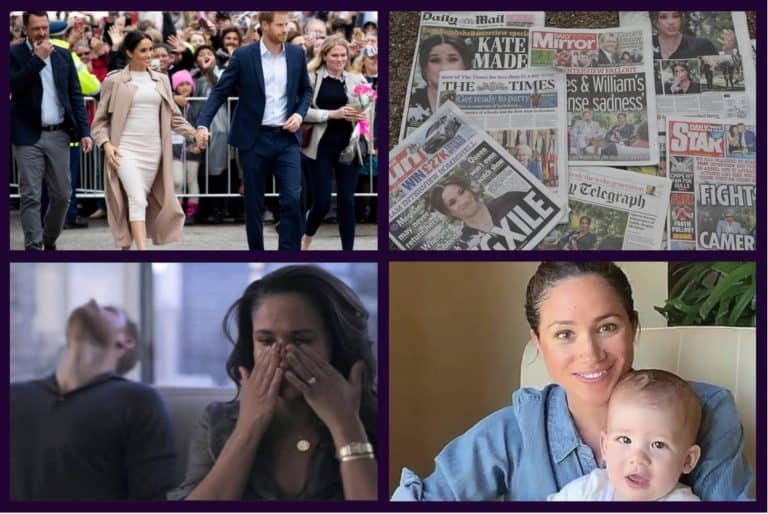
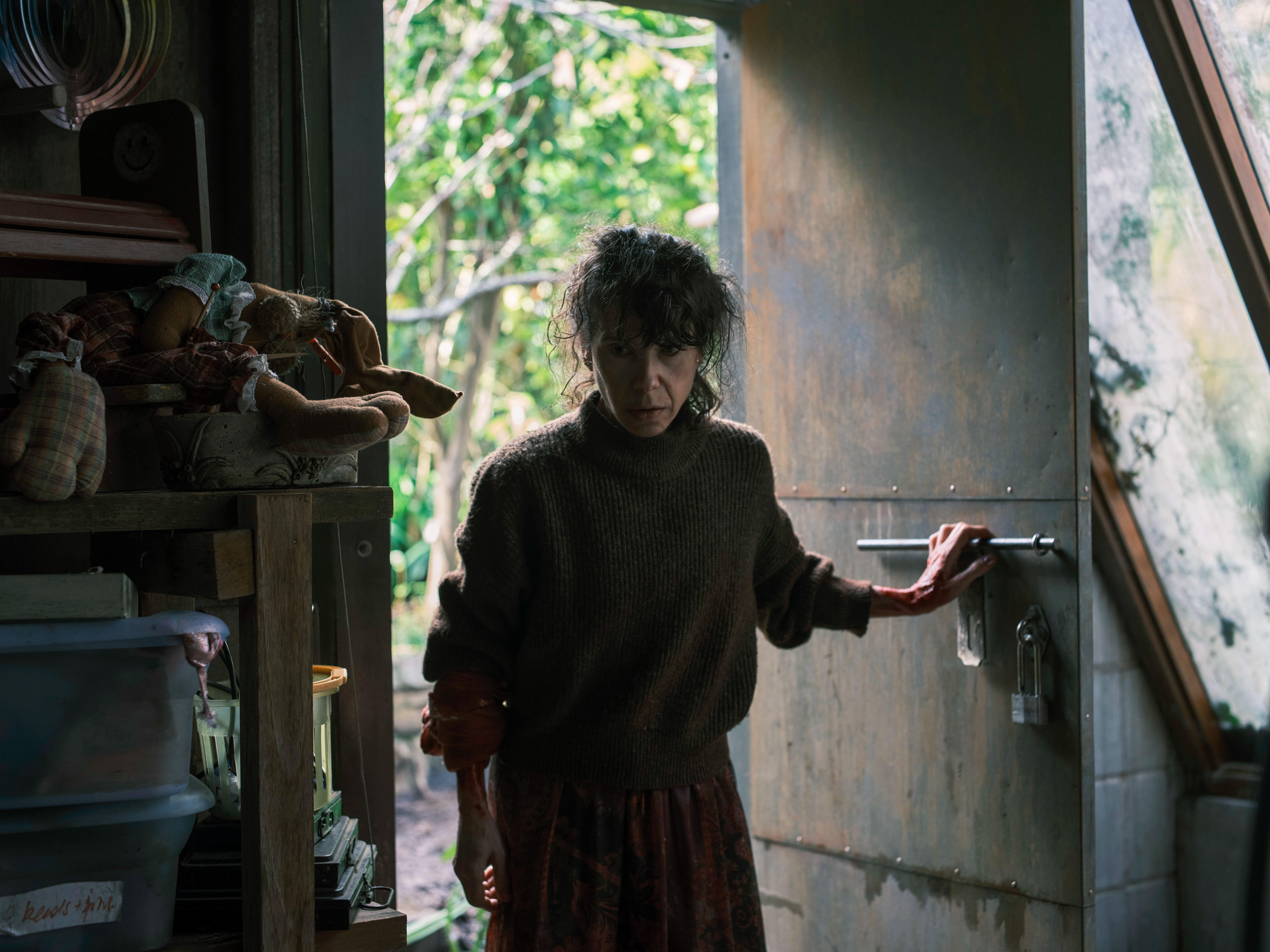
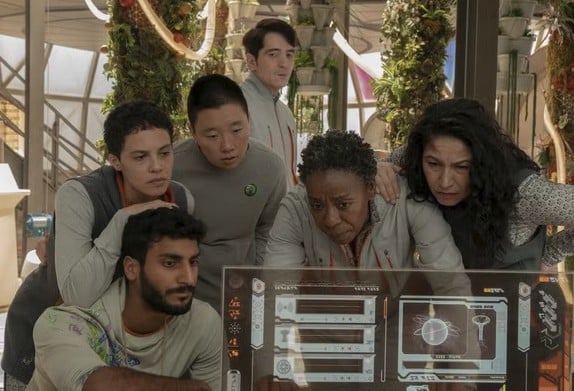




Start a watercooler conversation: